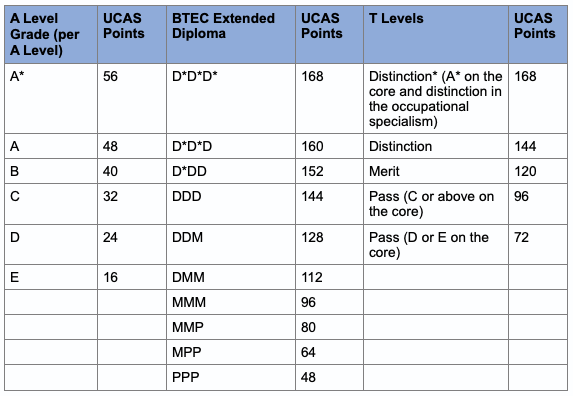What are T Levels?
T Levels are a new Level 3 post-GCSE qualification for 16-to-19-year-olds. One T Level is equivalent to three A Levels, and they take two years to complete.
They focus on a particular subject or industry such as Design, Surveying and Planning for Construction; Digital Production, Design and Development; Education & Childcare; and Health – visit https://www.tlevels.gov.uk/students/subjects for a list of current T Levels and what is coming soon.
T Levels have been designed by leading businesses and employers to give you the knowledge and skills you need to succeed in a career. They’re often seen as a great way to enter a specific career, whereas A Levels tend to offer a more general pathway.
During a T Level course, you’ll spend 80% of your time studying in a classroom and 20% with an employer on a minimum 9-week long placement. So, you gain lots of experience of the workplace and get a first-hand experience of what the job you’re studying for is like, combined with the chance to use and develop the skills that are needed in that industry. The benefit to the employers is that it gives them the chance to see new talent who want to enter and progress in their industry.
There are some similarities and differences with existing Level 3 vocational courses that are offered at sixth forms and colleges.
Let’s compare T Levels to some other Level 3 qualifications:
- T-levels are advanced level 3 courses and equivalent to 3 A Levels. They offer a much longer period of industry placement (usually up to almost 3 months) and aimed at students who are very clear on the career path they wish to pursue. The course is a combination of in-class study and work placement.
- BTECs are also advanced level 3 courses and equivalent to 3 A Levels. However, they may (depending on the course) have a shorter work experience period (approximately 2 weeks) and focus on developing key skills during practical sessions in college.
How do I know if a T Level is right for me?
T Levels can fast-track your career, but you’ll need to have a good sense of the industry that you want to work in. Because T Levels focus on one career, they offer a great pathway into a specific job, or similar. However, if you are not sure about what you want to do, you may wish to keep your options open.
T Levels are a great pathway into a higher apprenticeship or further study or entering straight into work. They are worth the same amount of UCAS points as 3 A Levels and will be recognised by universities and other education providers. So, you can either choose to continue studying, enter employment or undertake an apprenticeship.

To find out more about T Levels
Here are some links to useful websites and videos for you to find out more about T Levels and students’ experiences of studying them
- https://www.gov.uk/government/publications/introduction-of-t-levels/introduction-of-t-levels
- https://www.tlevels.gov.uk/
- https://www.tlevels.gov.uk/students/student-stories
- https://youtu.be/Yua48Uc0ChI
- https://youtu.be/KBGVopFzq5M
Where can you study T Levels locally
There are several colleges in the area that offer T Levels including:
- Buxton and Leek College – https://www.blc.ac.uk/t-levels/
- Chesterfield College – https://www.chesterfield.ac.uk/tlevels/
- Derby College – https://www.derby-college.ac.uk/t-levels/
- Nottingham College – https://www.nottinghamcollege.ac.uk/subjects/t-levels
- Vision West Nottinghamshire College – https://wnc.ac.uk/t-levels/
Next steps
Consider whether T Levels are the right route for you after your GCSEs, and then look at what is on offer for your preferred career path at your local providers. Colleges will have open days, where you can go along to the college, have a look round, meet tutors and students’ and find out more about the courses you are interested in. They can also offer advice and guidance about your choices after your GCSE’s and the pathways you can take to get into the career that you want.